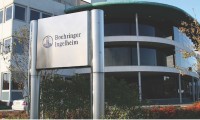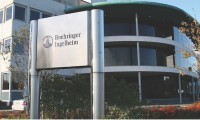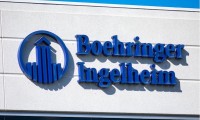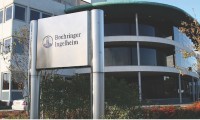-
Boehringer Ingelheim and IBM announce AI antibody drug discovery partnership
- Source: drugdu
- 110
- December 4, 2023
-
Boehringer Ingelheim Targets Stroma-Rich Cancers in Potential $509M AI Deal
- Source: drugdu
- 192
- December 1, 2023
-
Boehringer Ingelheim to acquire T3 Pharmaceuticals in deal worth over $500m
- Source: drugdu
- 106
- November 25, 2023
-
AbbVie, AstraZeneca, Boehringer and more face FTC’s ire for ‘improper’ patent listings
- Source: drugdu
- 93
- November 9, 2023
-
Boehringer Ingelheim advances weight loss drug to Phase III trials
- Source: drugdu
- 102
- August 22, 2023
-
Boehringer’s spesolimab shows promise in generalised pustular psoriasis prevention
- Source: drugdu
- 197
- July 6, 2023
-
Development of Two EHR Based Programs for Tracking Medications and Patient Care
- Source: FierceBiotech
- 566
- August 17, 2018
-
Boehringer Ingelheim BioXcellence Expands China Plant, adds Fill-Finish Line.
- Source: FiercePharma
- 735
- July 10, 2018
-
Patent Submission – Wearable Biometric Scanner Based EHR System
- Source: MobiHealthNews
- 726
- June 25, 2018
-
FHIR to Support EHR Data Sharing
- Source: HealthcareIT News
- 713
- June 21, 2018
your submission has already been received.
OK
Subscribe
Please enter a valid Email address!
Submit
The most relevant industry news & insight will be sent to you every two weeks.













